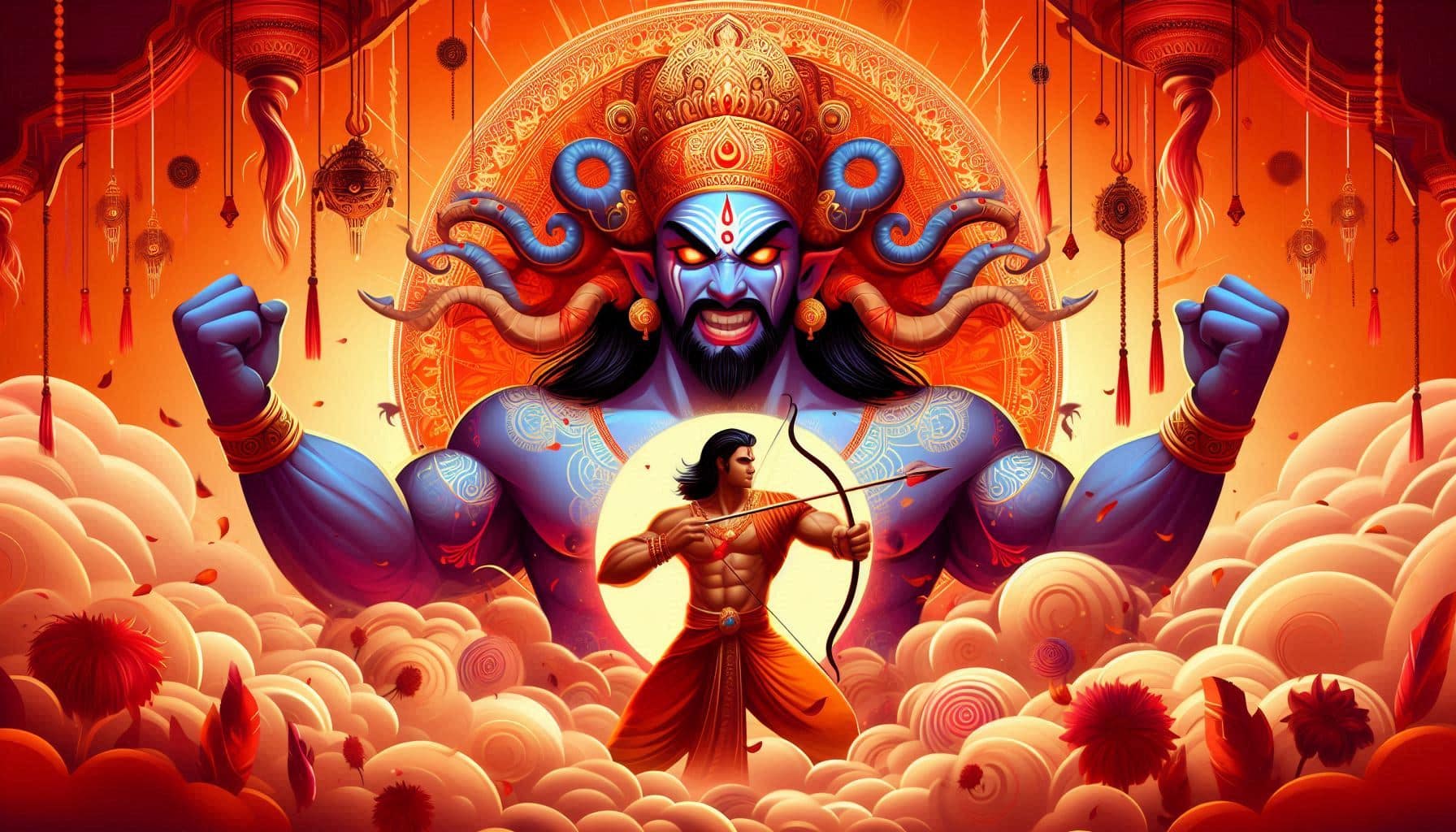
Spirituality
Dussehra: A Festival of Victory Over Ego and Negativity
Dussehra, also known as Vijayadashami, is a festival celebrated on the tenth day (Dashami) following the nine sacred nights of Navratri. This day holds immense spiritual and cultural significance. In Hindu tradition, it symbolizes the victory of good over evil. On this day, devotees worship the Divine Mother, concluding the rituals of Navratri, and then immerse her idol in water as a mark of respect and return to the divine realm.
In regions like Bengal, Durga Puja (worship of Goddess Durga) is central to the celebrations. The goddess is worshiped with great devotion, and her idol is immersed in water during the Visarjan ceremony. This act signifies her departure back to the heavenly abode after blessing her devotees.
Dussehra also commemorates the return of Lord Rama to Ayodhya after his triumph over the demon king Ravana. Hence, this day is celebrated as Vijayadashami (Victory Day). Across India, effigies of Ravana, his brother Kumbhakarana, and son Meghnath are burned, symbolizing the destruction of evil forces. Some people even collect the remnants of Ravana’s burning effigy, believing that the ash or burning wood can protect their homes from the evil eye. The sight of the Neelkanth bird (Indian Roller) is also considered highly auspicious on this day, believed to bring good fortune.
The Spiritual Lesson of Ego and Anger
Dussehra is not just a cultural event but a powerful spiritual reminder. One of its core teachings revolves around ego, which is one of the biggest obstacles to inner peace and harmony. Ego, or Ahamkara in Sanskrit, is the inflated sense of self-importance. It creates divisions, misunderstandings, and conflicts in personal relationships.
In ancient times, ego was primarily seen in certain relationships, but today, it has infiltrated almost every aspect of life—particularly in family and marital relationships. Husbands and wives often face conflicts due to ego, leading to a lack of happiness and harmony in their homes. Legal disputes, separations, and misunderstandings can all be traced back to the growing influence of ego.
But the problem goes even deeper. As parents, when we are consumed by ego, the effect on our children is profound. If parents, who are considered god-like figures in a child’s life, are unable to find harmony and peace, it disrupts the mental and emotional development of the children. What kind of future will they have if they grow up in an environment where ego overshadows love, wisdom, and compassion?
The Consequences of Ego and Anger
The festival of Dussehra teaches us to look within and reflect on the consequences of ego. Ravana, despite being a learned and powerful king, was destroyed by his own arrogance and inflated sense of self. His death is a symbol of how unchecked ego can lead to ruin. But even though we see this message every year during Dussehra, many of us fail to internalize its meaning.
After ego comes anger. Anger is like a burning fire that not only hurts others but consumes the person who holds onto it. When anger arises, it clouds our judgment and causes emotional pain, both to ourselves and to others. The increasing rate of depression, particularly among youth, can often be traced back to suppressed anger and unresolved ego issues. The world is witnessing a rise in mental health challenges, and much of it stems from the unchecked growth of these negative emotions.
Burning the Ego in the Flames of Dussehra
Just as the effigies of Ravana are burnt on Dussehra, symbolizing the destruction of evil, we too must burn our own ego in the spiritual flames of this festival. Only when we consciously work on reducing our ego and controlling our anger can we lead a life filled with peace, prosperity, and happiness.
The fire of Dussehra is a metaphor for inner purification. It reminds us that spiritual progress is not just about performing rituals but about overcoming the inner demons of ego, pride, and anger. In this way, Dussehra becomes a day not only of outward celebration but of deep inner reflection.
The Path to a Happy and Prosperous Life
To ensure a happy, prosperous, and advanced life, it is essential to burn the ego in the fire of self-awareness and humility. As Dussehra marks the triumph of good over evil, let it also mark our personal victory over the ego and anger within us. By doing so, we pave the way for mental peace, emotional well-being, and spiritual growth, ensuring that we live in harmony with ourselves and others.
In essence, Dussehra is not just about the external victory of Lord Rama over Ravana but a call to achieve our own inner victory over the negative forces that reside within us.
Post a Comment
-
Subscribe to Our Blog
-
Categories
-
Popular Articles
- Dead moth in the house. What universe is trying to tell you?
- Spiritual Meaning of Moth
- Vivah Bandhan Curse – What Is It and How to Spiritually Heal It.
- The Dasa Mahavidyas
- What are Beej Mantras?
- Tripura Sundari | The Dasa Mahavidya
- Maa Bhuvaneshwari | The Dasa Mahavidyas
- The Five Shades of Tantra
- Ramakrishna Paramhansa – The Man who almost became a Woman
- Bangles – A Forgotten Tradition – Their Spiritual and Health Benefits



